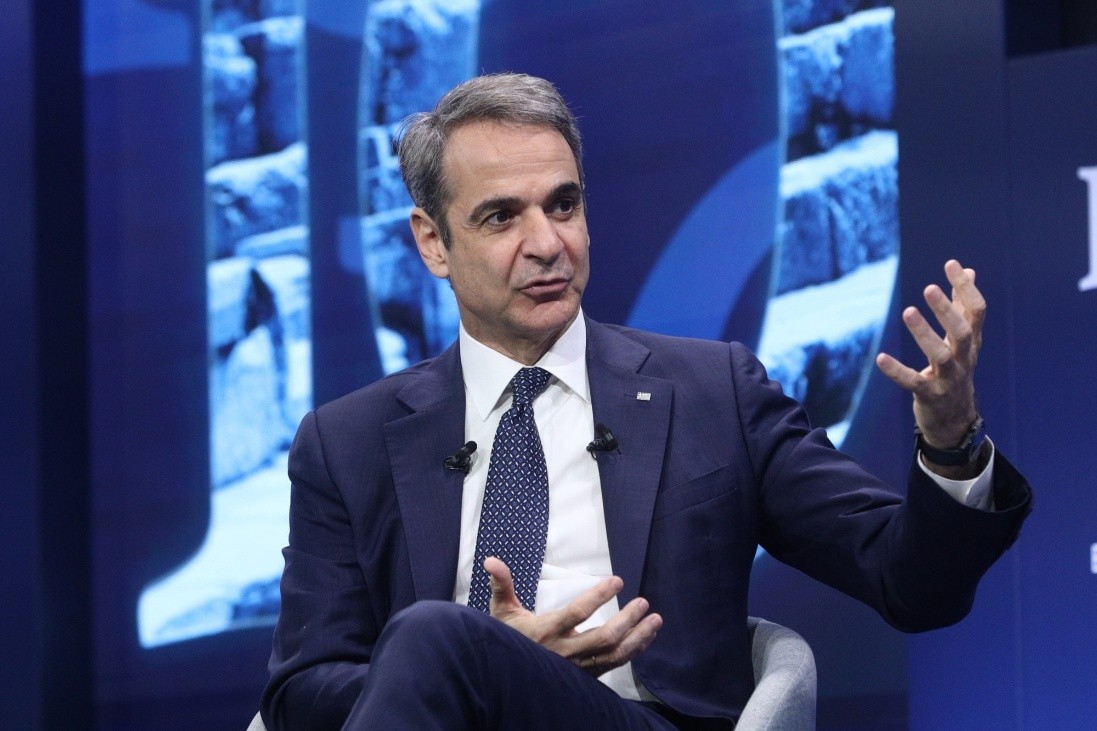By Dimitris Kouvaras,
The possibility of a drastic political rearrangement looms over Greece, as new voting intention polls that gained publicity in recent weeks denote noticeable changes in the distribution of public support among political parties. Among all that appears to have shifted, the primary cause of unease within much of the political establishment is the staggering rise of Plefsi Eleftherias (i.e. Course of Freedom), a party led by Zoi Konstantopoulou, whose public support has skyrocketed from 5% in December 2024 to around 16%, placing it second only to the centre-right governing party, Nea Dimokratia (i.e. New Democracy). The latter has maintained most of its support base despite facing numerous controversies—such as the handling of the Tempi crash—and has lately shown a slight upward trend, according to party spokespersons.
Nevertheless, its polling percentage of 27%, even in the most generous surveys, pales in comparison to the 40% it secured in the 2023 election. Meanwhile, on the centre-left front, fragmentation has become the norm, with PASOK (Movement for Change) barely climbing by a point to around 12% compared to June 2023, having lost much of its late-2025 momentum. SYRIZA, for its part, remains unable to reverse a downward trend, landing at a meagre 6%. On the edges of the political spectrum, the Communist Party (KKE) maintains a stable base of around 8% on the Left, while on the hard right, the nationalist Elliniki Lysi (i.e. Greek Solution) has risen to fourth place overall, with around 11%. Lastly, the newly established Foni Logikis, a curious consortium of conservative ideas, has reached almost 4%. Arguably, there’s a lot to digest for political analysts and casual observers alike.

Of course, as the Greek experience with polls demonstrates, they are volatile and can shift at any moment. However, abrupt changes have underlying causes rooted in national sentiment towards political actors, reflecting citizens’ preoccupations or desires. They therefore merit attention—which is exactly why this article focuses on them, centring the discussion on the impressive rise in popularity of Plefsi Eleftherias. For context, the party was founded in 2019, and its leader was formerly a key member of SYRIZA, until her rupture with Alexis Tsipras over the 2015 referendum. It remained marginal until 2023, when it barely made it into Parliament with about 3%—a statistic that make its current performance all the more impressive. Most other parties have characterised this surge as a temporary result of anti-government sentiment surrounding the anniversary of the fatal Tempi train incident, which I have covered in two other articles.
Party leader Zoi Konstantopoulou, a practising lawyer, has taken on the legal representation of the families of the youth who lost their lives at Tempi and are seeking justice. Due to her active involvement in a case that mobilised Greek society to an exceptional degree—or so the story goes—her party is now reaping political rewards. Indeed, the Tempi momentum, which has placed Nea Dimokratia and Kyriakos Mitsotakis in the crosshairs, has played a key role in building a diverse audience for Plefsi Eleftherias. It provided fertile ground for the party to display militant opposition in Parliament, including the initiation of a vote of no confidence in the government—which ultimately failed to materialise. Furthermore, both PASOK and SYRIZA were tarnished by their own negligence over the railway network while in office, preventing them from capitalising on public anger and leaving the yet “uncorrupted” Plefsi Eleftherias ample space for differentiation on the Left. Unsurprisingly, disaffected voters from those parties were two great channels contributing to its rise.
Amid their losses, both parties joined Mr. Mitsotakis in labelling Zoi Konstantopoulou a populist and Plefsi Eleftherias a “party of dissent”. Speaking at the Delfi Economic Forum, the Prime Minister identified the shift in voting preferences as a symptom of the imbalance in the Greek political system, which—at least since 2023—has lacked a strong opposition block with sufficient parliamentary or ideological clout. This, according to him, has created fertile ground for “populist voices” that capitalise on public sentimentalism and pessimism. Mirroring Nea Dimokratia, major political parties have responded to their declining support by branding themselves as actors of stable, reliable, and institutional governance, in contrast to the unpredictable and anti-institutional Plefsi Eleftherias, whose rise they attribute to social media campaigns.
However, the government’s claims to reliability have been undermined by its ineptitude in managing a national tragedy, leading to incomplete evidence, conspiracy theories, and conflicting reports. This has further eroded its technocratic image and revealed a growing disconnect from public expectations. With ministers appearing in the media spreading borderline disinformation, it becomes difficult to assign political credibility to any one side. Meanwhile, PASOK and SYRIZA no longer convince the public of their potential for change, constrained by unfavourable memories and a lack of charismatic leadership. Combined, these developments paint a picture of political stagnation—one in which Plefsi Eleftherias, in the eyes of many, represents movement. But, returning to the central question: Is Zoi Konstantopoulou a populist?

For one, her rhetoric replete with populist-leaning language and motifs. She describes Plefsi Eleftherias as a “movement” rather than a party, alludes to direct democracy, and refers to her unmediated relationship with the public—exemplified by having made her personal phone number public. This emphasis on direct connection, coupled with her statement in a recent interview that “I don’t consider myself a politician”, creates an unconventional but appealing profile, that challenges traditional political roles. What’s more perplexing is that her party identifies as neither Left nor Right—despite often being associated with the Left—to openness to all social groups. According to Konstantopoulou, such labels are often fluid and serve social division over unity, with unity being the ultimate aim of her movement. Overall, the populist undertones are evident, and the ”no-left-no-right” mantra may come across as evasive. Nevertheless, it would be biased to deem this necessarily negative.
Populism is often equated with demagoguery and deceit, but it can also be a revitalising force if the parliamentary system evolves to meet the social demands that fuel it. In the Greek context—where political disillusionment is at its peak— someone had to stir the waters. That someone happened to be Ms. Konstantopoulou. Though arguably a polarising figure, she has honoured her promise to provide militant opposition by consistently pressing the government on the Tempi issue when few others did. Furthermore, the need for closer proximity between politicians and citizens is indeed a missing piece in Greek political culture, and Nea Dimokratia’s own spokesperson recently admitted this weakness. As a result, there is another side on the shift in voting preferences towards Plefsi Eleftherias—one that highlights chronic shortcomings in the political establishment rather than simply blaming the mood of the moment.
After all, when asked if she is prepared to govern—following relatively fair criticisms that her party lacks a consistent agenda—Ms. Konstantopoulou replied that she is not, since the party’s initial aim was to create a model of militant opposition, and its modest parliamentary footing in 2023 did not justify planning for governance. However, she added that she is now in the process of preparing. In this case, the answer was sincere, devoid of populist overtones—an answer that could serve as an example to many, including the government side. It is, therefore, too early to predict how the rise of this new element will play out, or what effect its populist notes will have. Equally, the unfolding of Plefsi Eleftherias’ political agenda will be crucial in determining its value. But for now, it is no small thing that, for once, the political establishment is feeling the tangible impact of its disconnect from society—and that the need to re-establish political trust is being placed back on the table. Politics, after all, is about action.
References
- Η εκτόξευση της Πλεύσης Ελευθερίας και τα ερωτήματα. Kathimerini. Available here
- Discontent of Greeks Leads to Surprising Rise of Political Underdog. Thetimes.gr. Available here
- Greece — National parliament voting intention. POLITICO. Available here
- Country on political ‘roller coaster’. eKathimerini. Available here




